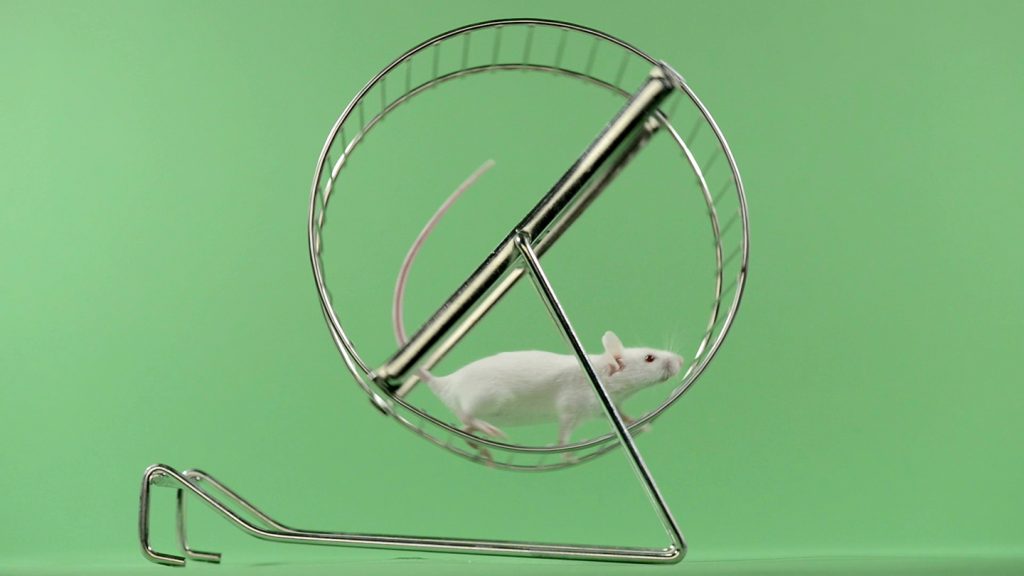A recent study discovered that mice taking semaglutide, a drug for diabetes and weight loss, ran significantly less on a wheel compared to those not on the drug. This finding has raised questions about whether drugs mimicking a hormone called GLP-1 might impact people’s motivation to exercise. While these results are preliminary, they suggest a possible link between semaglutide and reduced physical activity levels.
Mice with access to a running wheel typically run a substantial distance every day, but those on semaglutide ran about 38% less after being on the drug for seven days. This reduction in running distance was not seen in mice on a restricted diet who lost the same amount of weight without the drug. Instead, further experiments suggested that the decrease in running activity was due to a lack of motivation rather than weight loss.
The mice’s reduced running habits appeared to be related to their willingness to exert effort to unlock their running wheel. Mice on semaglutide poked the wheel less frequently, indicating a lower eagerness to engage in physical activity. This altered behavior raises concerns about the impact of these drugs on exercise decisions and could have implications for how healthcare providers discuss the importance of physical activity with individuals taking GLP-1 drugs.
While GLP-1 drugs can help people lose weight, they may also decrease muscle mass, which is essential for overall health. Pairing reduced exercise motivation with muscle loss could present health challenges. Additionally, there are suggestions that semaglutide may reduce compulsive behaviors, including potential effects on exercise habits and the brain’s reward systems.
It remains unclear whether the findings from studies on mice can be directly applied to humans. However, individuals taking GLP-1 drugs have reported a decrease in cravings for food, alcohol, and nicotine. Side effects such as fatigue, low energy, and nausea associated with these drugs may impact an individual’s motivation to engage in physical activity. This raises concerns about the prioritization of exercise solely for weight loss and the potential impact on overall health and wellbeing.
Experts emphasize that physical activity and fitness play a crucial role in promoting longevity and health, beyond just weight loss. Concerns have been raised that individuals may rely solely on drugs for weight management, neglecting the importance of regular exercise. Encouraging individuals to prioritize physical activity as part of a healthy lifestyle is essential, even when using medications for weight management, to ensure optimal health outcomes.


